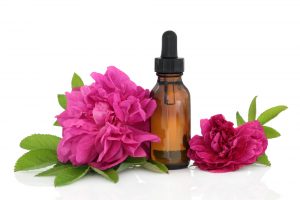The main cause of acne when you’re pregnant is the increased hormone levels in the first trimester. The higher level boosts your skin’s production of natural oils. An increase in hormones called androgens can cause the glands in your skin to grow and produce more sebum — an oily, waxy substance. This oil can clog pores and lead to bacteria, inflammation, and breakouts.
It’s hard to predict who will develop pregnancy acne. You have a higher risk, though, if you have a history of acne or have acne flares at the start of your menstrual cycle. If you don’t get acne during the first trimester, it’s unlikely you’ll have breakouts that are out of the ordinary during the second or third trimesters.
Choosing the right topical acne cream during pregnancy is important because you want to make sure the medication is safe to use. This decision is one that you will want to make carefully.
Which cream during pregnancy is the best one to use?
Before you choose topical acne cream you should ask your doctor. She will be able to tell you which topical acne creams can be used safely during pregnancy.
Another thing you can do to determine which topical cream during pregnancy is safe to use is to talk to the pharmacist at your drugstore. You can find some very valuable information about which treatments during pregnancy are the best to use.
There are some unsafe treatments. Such as Isotretinoin, which is an oral medication that has revolutionized the way severe acne is treated. But it’s especially dangerous when you’re pregnant. That’s because the drug can cause serious birth defects.
If you plan to use topical acne cream during pregnancy you should always read the package warnings. If you want to use a topical cream during pregnancy you can read through the warnings and find out if the product is safe to use.
Topical acne cream during pregnancy may reduce outbreaks and keep your skin toned as well. You may be able to find a topical acne cream that will help your blemishes shrink. Many of these creams will not dry your skin and can add the moisture your skin needs to be healthy.
But it’s important to remember that many topical medications have not been adequately studied in pregnancy. So again, be sure to talk to your doctor before you start any acne treatment.
There are thankfully for natural drug free ways to manage and help prevent acne during pregnancy:
- Limit washing to two times per day and after heavy sweating.
- When you do wash, use a gentle, oil-free, alcohol-free, and non-abrasive cleanser.
- Use a cotton pad or washcloth to lightly wash your face (but change and use a clean cloth or pad each time).
- After washing, rinse your skin with lukewarm water. Then gently pat dry and apply moisturizer.
- Avoid over-cleansing. It can overstimulate the skin’s oil glands.
- Shampoo regularly. If you have oily skin, it’s best to shampoo daily. Avoid oily hair mousse or pomade near the hairline.
- Change your pillowcases frequently.
- Try to keep your hands off your face because there are bacteria on the fingers.
If you need a topical cream during pregnancy you will have many to choose from but if you aren’t sure, talk to a pharmacist or even a dermatologist to see what your best options are. Be safe when treating your acne, for you and your baby.







Be First to Comment